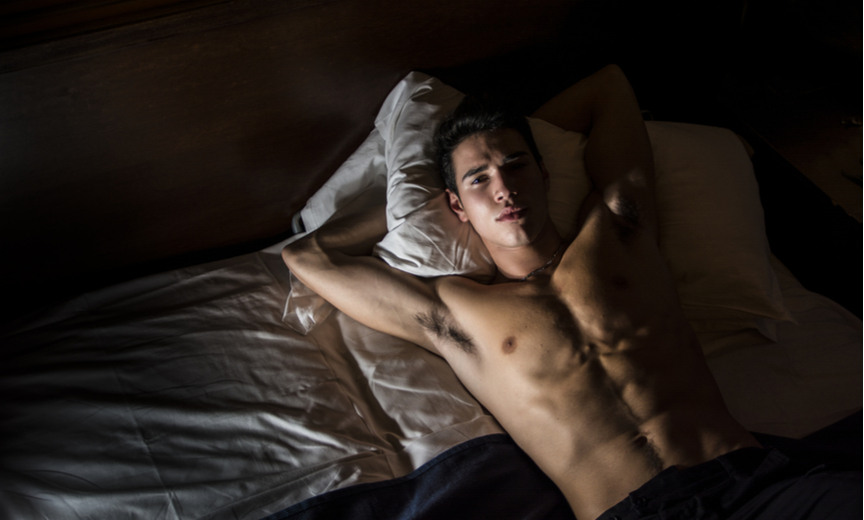Sleepless nights can lead to more than frustration — leaving you feeling dull, depressed and forgetful — not to mention at risk for health problems including high blood pressure, stroke and diabetes. Plus it ages your skin — increasing the likelihood of fine lines and the dreaded under eye bags. The American Academy of Sleep Medicine and the Sleep Research Society recommend adults 18 to 60 years old sleep at least seven hours each night in order to promote a healthier lifestyle and optimal well being.
We consulted Dr. Carmela Alcántara, Associate Professor at Columbia University School of Social Work. Alcántara is a clinical psychologist with expertise in sleep disparities and public health. She is Director of the Sleep, Mind, and Health Research Program at Columbia University and is passionate about educating the public on the importance of sleep for health. As an expert in her field, she offered six simple tips to promote healthy sleep:
Read Next | NYC Bath Houses Are Back, and Gay Men Are Cruising Them Once More
- Create an environment that encourages sleep by making sure the place you sleep is dark, quiet, comfortable and cool.
- Wake up at the same time each day, regardless of your sleep quality the night before.
- If you’re unable to sleep, get up and out of bed. Try going into another room until you feel tired again before returning to sleep. Repeat this process if necessary.
- Use the bed for sleeping only. It shouldn’t be used for watching television, reading, eating, or other activities. (However, intimate activity is acceptable.)
- Try not to worry while in bed. If you find yourself planning, feeling anxious or having racing thoughts, get up and out of bed until you can get your brain to calm down.
- Establish a buffer zone. Set aside some quiet time before bed to spend doing enjoyable activities that will help you to feel calm and relaxed rather than trying to go right from work to rest.

Meditation may also help to combat sleepless nights. A recent clinical trial reported in JAMA’s Internal Medicine studied 49 adults who had difficulties sleeping. Half of the group went through a mindfulness awareness program in which they learned meditation exercises, while the other half completed a simple sleep education class in which they went over strategies to improve their sleep habits.  Those who went through meditation exercises experienced less insomnia, fatigue and depression. Apps such as Headspace, Smiling Minds, Calm, Insight Timer, and Sattva can help you get into the habit. Even Oprah Winfrey teamed up with Deepak Chopra for the “Oprah & Deepak’s 21-Day Meditation Experience” mobile app. You can also seek it out in a group setting, like NYC’s colorful INSCAPE studio where they offer a balance of modern wellness and mindful luxury in classes like Deep Sound, Deep Breath and Deep Rest. Learn more at inscape.life.
Those who went through meditation exercises experienced less insomnia, fatigue and depression. Apps such as Headspace, Smiling Minds, Calm, Insight Timer, and Sattva can help you get into the habit. Even Oprah Winfrey teamed up with Deepak Chopra for the “Oprah & Deepak’s 21-Day Meditation Experience” mobile app. You can also seek it out in a group setting, like NYC’s colorful INSCAPE studio where they offer a balance of modern wellness and mindful luxury in classes like Deep Sound, Deep Breath and Deep Rest. Learn more at inscape.life.
Read Next | This Is How Your Design Aesthetic Evolves
You can also try adjusting your evening routine. Alternatives include Celestial Seasonings Sleepy Time Tea or a warm bath with Kiehl’s calming Lavender Foaming-Relaxing Bath with Sea Salts and Aloe. This, paired with their Midnight Recovery Eye Treatment and Midnight Recovery Concentrate can help alleviate those dark circles you’ve been building up.
Luxury purveyor Philip Stein has also stepped into the sleep market with The Sleep Bracelet — designed to help you fall asleep faster and wake up feeling more refreshed. It uses natural frequency technology to increase the body’s production of melatonin, which synchronizes the sleep/wake cycle. Don the Sleep bracelet 15–30 minutes before bedtime, and they are available in a variety of colors for $395–$425 at philipstein.com.

Read Next | Finding a Great LGBT Friendly Physician in New York
Last modified: July 25, 2019














